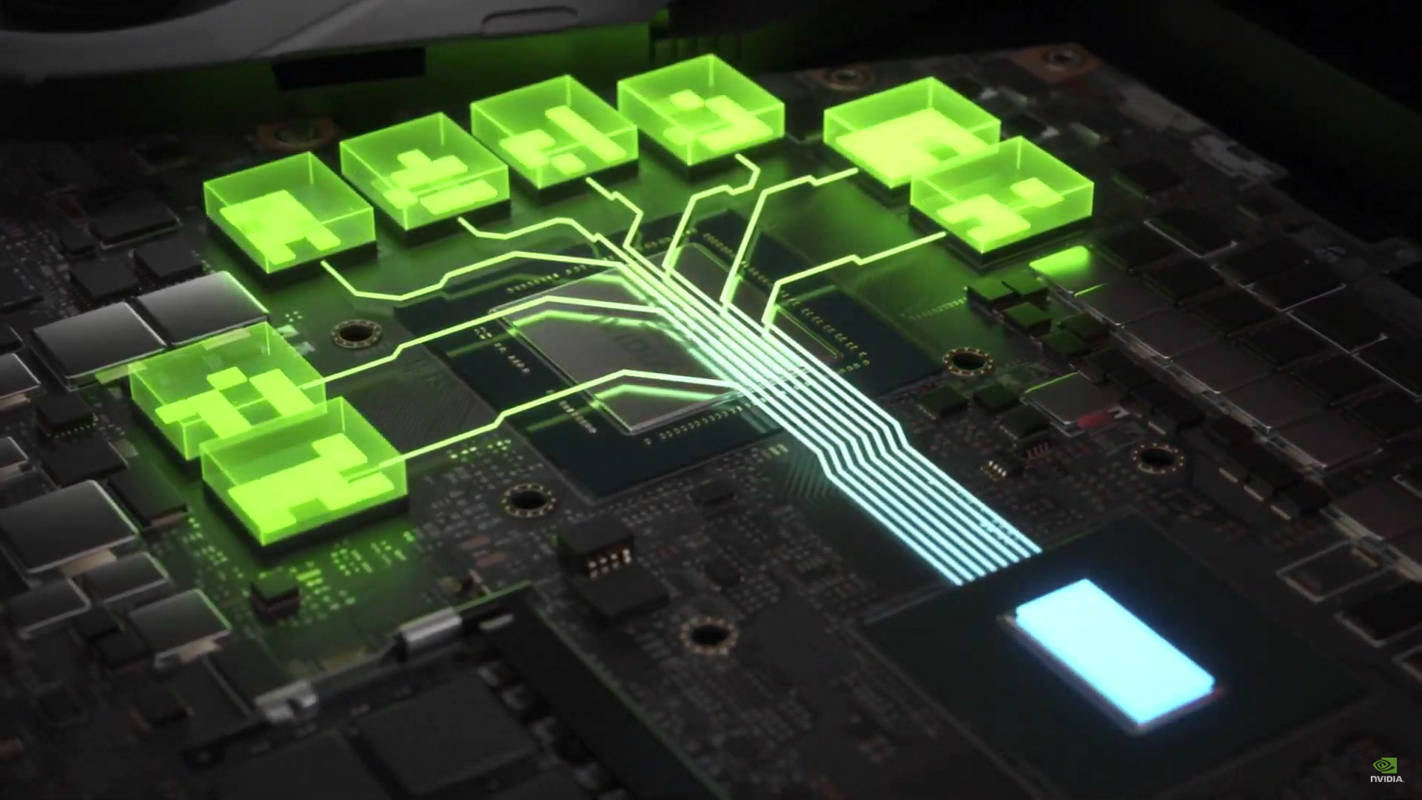CES 2021: NVIDIA GeForce RTX 30 Series Laptop GPUs introduced
NVIDIA took the wraps off the NVIDIA GeForce RTX 30 series laptop GPUs, bringing Ampere to gaming laptops. NVIDIA kicks off the series with three GPUs, the NVIDIA GeForce RTX 3060, GeForce RTX 3070 and GeForce RTX 3080, to bring the next level of gaming performance in mobile form factors.
The GeForce RTX 30 series marks a departure back to the days when the mobile GPU is significantly different from its desktop namesake. While we definitely wouldn’t expect NVIDIA to cram a 300W TGP GPU into a laptop, NVIDIA is not only changing the power limit, but also the core count and memory specifications of the Ampere GPUs with the newly announced laptop GPUs.
We will be comparing them side-by-side here for you to get a quick idea of the differences:
NVIDIA GeForce RTX 30 Series Laptop GPU Specs
| NVIDIA GeForce RTX 3060 | NVIDIA GeForce RTX 3060 Laptop GPU | NVIDIA GeForce RTX 3060 Ti | NVIDIA GeForce RTX 3070 Laptop GPU | NVIDIA GeForce RTX 3070 | NVIDIA GeForce RTX 3080 Laptop GPU | NVIDIA GeForce RTX 3080 | |
| CUDA Cores | 3584 | 3840 | 4864 | 5120 | 5888 | 6144 | 8704 |
| Clocks (GHz) | 1.78 | 1.28~1.70 | 1.67 | 1.29~1.62 | 1.73 | 1.25~1.71 | 1.71 |
| Memory | 12GB GDDR6 | 6GB GDDR6 | 8GB GDDR6 | 8GB GDDR6 | 8GB GDDR6 | 8GB / 16GB GDDR6 | 10GB GDDR6X |
| Memory bus width | 192-bit | 192-bit | 256-bit | 256-bit | 256-bit | 256-bit | 320-bit |
| TGP rating | 170W | 60~115W | 200W | 80~125W | 220W | 80~150W | 320W |
| NVLink | No | N/A | N/A | N/A | No | N/A | No |
| Availability | Late-February 2021 | 26th January 2021 | 1st December 2020 | 26th January 2021 | 27th October 2020 | 26th January 2021 | 17th September 2020 |
It seems like NVIDIA is targeting the slots in between their existing desktop lineups with the GeForce RTX 30 series laptop GPUs. And most interestingly, while the GeForce RTX 3070 and GeForce RTX 3080 for laptops is inferior to their desktop counterparts, the GeForce RTX 3060 laptop GPU is actually a bigger GPU than the desktop GeForce RTX 3060, instead slotting itself between the GeForce RTX 3060 Ti and GeForce RTX 3060. These are truly confusing times.
Of course, comparing desktop GPUs to laptop GPUs is a very moot point given the vast difference in power and also thermal headroom. Against the last-gen GeForce RTX 2080, NVIDIA claims a performance uplift of up to 50% with the GeForce RTX 3080 laptop GPU. So yeah, these are really beefy mobile GPUs.
3rd Gen Max-Q Technologies
Performance is only one aspect of laptops, and NVIDIA is also set to improve the user experience of the upcoming Ampere-based laptops with the 3rd Gen Max-Q Technologies which encompasses Dynamic Boost 2.0, WhisperMode 2.0, DLSS and also Resizable BAR.
Dynamic Boost 2.0 uses AI to balance the power between CPU, GPU and VRAM on a per-frame basis to deliver the best performance in your applications. Meanwhile, WhisperMode 2.0 uses AI to tune your CPU, GPU, fan speed and game settings depending on your fan noise preferences. NVIDIA DLSS definitely needs no introduction, using AI to upscale graphics for increased performance. Resizable BAR is probably the most interesting of them all.
Intel has announced that the Intel Tiger Lake H35 support Resizable BAR with NVIDIA GPUs, which allows the CPU to communicate with the full GPU VRAM to deliver better performance. Resizable BAR is PCIe spec that AMD used and dubbed AMD Smart Access Memory.
NVIDIA GeForce RTX 30 series Laptops coming from $999 this 26th January
Excited about all the technology on display? Well, the NVIDIA GeForce RTX 30 series laptops will be coming this 26th January, with prices starting from $999 (~RM4051). The GeForce RTX 3070 laptops will come in from $1299 (~RM5267), while the GeForce RTX 3080 laptops will start from $1999 (~RM8106). NVIDIA claims more than 70 designs will be launched on 26th January, so stay tuned!
Pokdepinion: It is definitely time to replace my ROG Strix SCAR II with its GTX 1070…




























